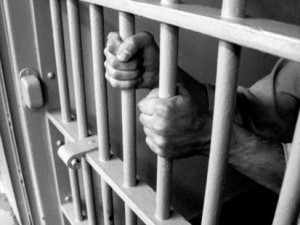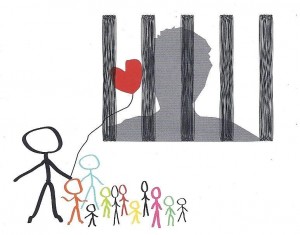As prison reform becomes a bigger issue in politics and social movements, people have started contributing more and more resources towards enacting change. This is wonderful for the beneficiaries of this progress, the prisoners and parolees, but it leaves out a large group of people who are equally as affected by the prison system: the people they leave behind. The families, friends, and neighbors of prisoners still experience negative effects of prison without being in custody themselves. With approximately 3.1% of US  residents in the system that leaves a lot of people who need extra support but who are almost always forgotten when it comes to reform. These people need our help, which can come in many forms from monetary contributions to job assistance to donations, but always results in something as important yet simple as providing hope.
residents in the system that leaves a lot of people who need extra support but who are almost always forgotten when it comes to reform. These people need our help, which can come in many forms from monetary contributions to job assistance to donations, but always results in something as important yet simple as providing hope.
 population.
population.When people live and children grow up in this kind of environment it affects the way they perceive the world, the US government, and themselves. They face all these problems created by the country’s massive prison system but see the government and other groups do little to help them with the situation. Of course some groups do try to make a difference and the government does have some presence in their lives through welfare programs but these are general programs for the poor and do not typically focus directly on families affected by the prison system. As a result, lots of people do not believe the country cares about them and some even believe government officials view them as expendable. Even worse, author Cathy Cohen showed in her book Democracy Remixed that 40% of African American youths view themselves as less than full citizens because of the way they perceive the government’s role in their lives. I think it’s a tragedy that people should feel like that in their own country, especially when it is a problem that could be easily fixed. If more groups, including the government, went to these neighborhoods and had a presence in people’s lives, then they could help shift that view, while providing the necessary assistance to offset the negative effects on prisoners’ families.
It can be extremely difficult to have a lasting effect on people’s lives after support groups move out, but it is possible if you change people’s perceptions at the same time you give them assistance. Esther Duflo, an economist from MIT, studied a programme in India aimed at assisting the extreme poor through small monetary and asset donations and found that this simple change led directly to higher earnings and better overall mental health because the people finally had hope. Many people get stuck in poverty because they believe they cannot escape it no matter what they do, so providing assistance, even minimally, can change that mentality and act as a catalyst for someone to change their life. The same theory could be applied to prisoners’ families in the United States. If groups can go into neighborhoods and meet with people to provide help and show that the country really does care about them, they have the potential to make a sustainable impact. They may not be able to make lasting changes in everyone’s lives but they can give them the tools to help themselves now and in the future, which begins with hope.


